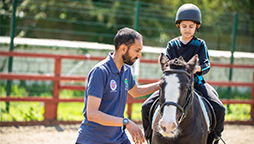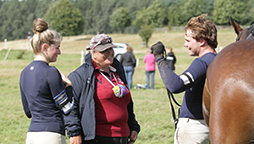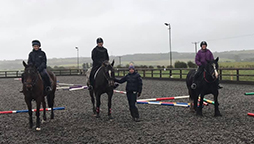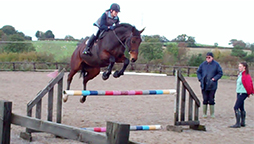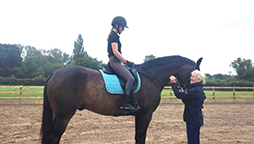Coaching high-performance riders
While some coaches will specialise in working with one particular participant group, others will work across several different groups over the course of their coaching. The coaches featured on this page are just some of those working with high-performance riders who are selected to represent their country.
Quick jump to a coach's profile
Fred Bergendorff
Richard Waygood MBE
Sophie Wells MBE
Fred bergendorff
What are your coaching qualifications?
UKCC Level 3 (British Equestrian)
What are the main participant groups that you coach?
- Teenagers of all abilities
- Performance development riders
- High-performance riders
If you teach multiple participant groups, do you have a favourite?
Maybe high-performance riders, but enthusiasm and open mindedness is what makes it extra fun.
What inspired you to start coaching?
My father was a teacher, albeit in a completely different field, and I also had the realisation that I could be a part of making changes in the equestrian industry if I was a coach.
What’s your proudest coaching moment?
It's easy to count up European Championship medals and Nation Cup finals, and they are up there for sure. It's also been very rewarding to support my son, who's taking his coaching qualifications in tennis. The proudest coaching moment, though, comes from a few years back – I was a long-time coach to a former event rider, Molly Lakin, and during that period she went from Novice level to jumping clear at Blenheim Palace Interntional Horse Trials. That was probably the first time I fully put my holistic coaching approach to the test, and with a very positive result.
How would you encapsulate your approach to coaching?
Supportive and goal-driven.
Do you have a piece of wisdom that you feel most riders could benefit from?
- Set goals for yourself
- Learn the basics
- Be good at self-reflection
- Surround yourself with a strong, supportive team
What advice do you have for somebody who’s looking for a coach to learn from?
Find somebody who cares about you and shares your values.
Richard Waygood MBE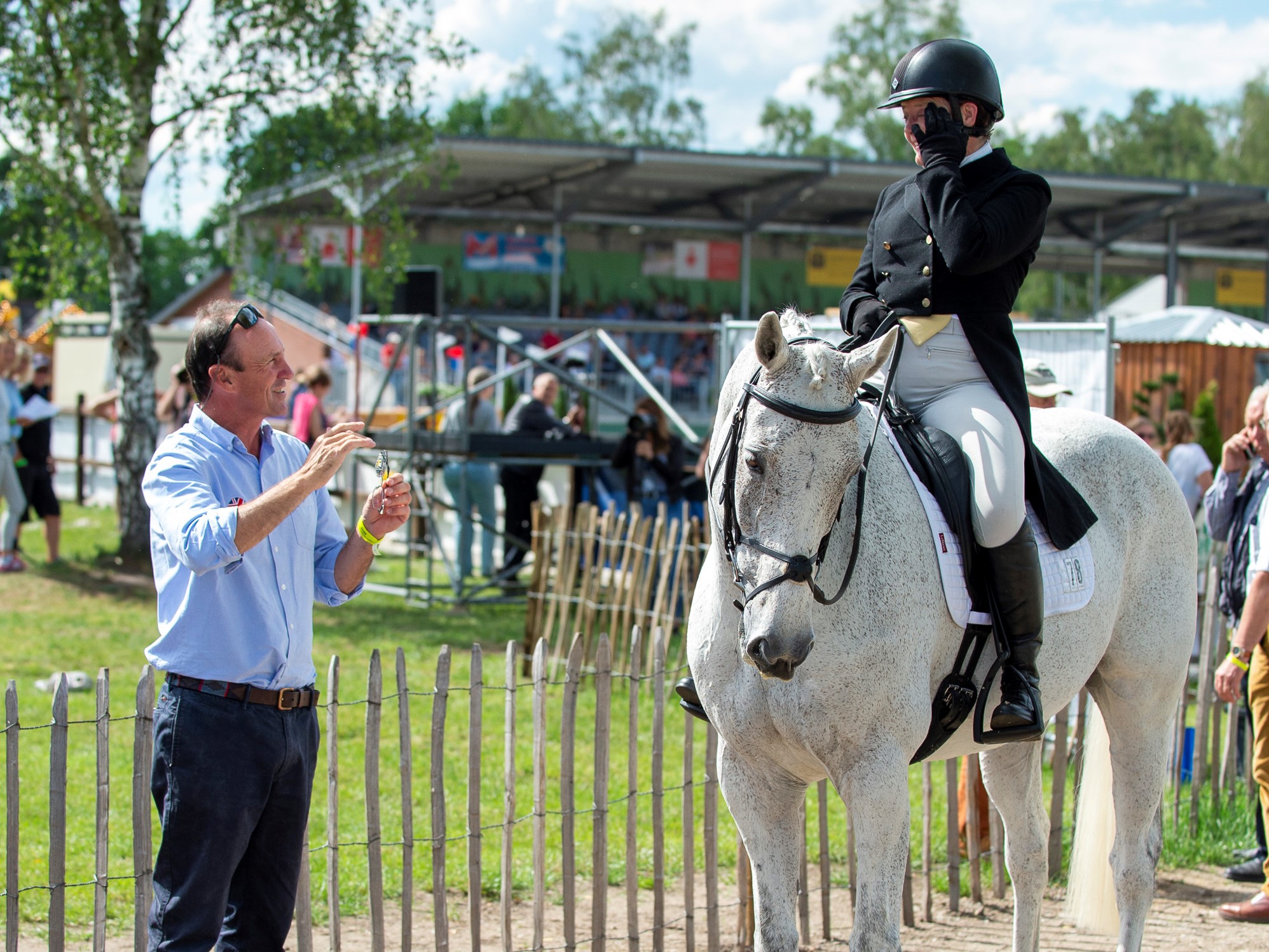
Coaching qualifications
British Eventing Master Coach, BHSAI
What are the main participant groups that you coach?
- Adult competitive riders
- Performance development riders
- High-performance riders
Do you have a coaching specialty or a favourite aspect of coaching?
Showjumping and cross-country
What inspired you to start coaching?
I was inspired to start coaching when I was in the military – as soon as I went on the riding course, I knew I wanted to become a equestrian coach, and I went on to hold the role of Riding Master for seven years before I left the army in 2009.
What’s your proudest coaching moment?
There are so many, but in essence it’s whenever a rider achieves their goal – and even more so when they out-perform themselves.
How would you encapsulate your approach to coaching?
I want to create an environment where the rider has ownership of their own performance, and isn’t dependent on their coach. When a horse comes down the centre line or out of the start box, the only thing a coach can control is their own emotions. At this point, it’s entirely in the rider’s hands, so they need to feel empowered and confident in making their own decisions.
Do you have a piece of wisdom that you feel most riders could benefit from?
Get the basics right, so that in times of crises you can revert back to them and they’ll look after you.
What advice do you have for somebody who’s looking for a coach to learn from?
Talk to other riders and get recommendations through word of mouth. Coaching qualifications are one thing, but being able to deliver on the field of play is another. You need to find a coach who has the skill and level of intellect to be able to back up their coaching philosophy.
Sophie wells mbe .jpg)
Coaching qualifications
UKCC Level 3 (British Dressage)
What are the main participant groups that you coach?
- Teenagers of all abilities
- Adult participation riders
- Performance development riders
- High-performance riders
Do you have a coaching specialty or favourite aspect of coaching?
Probably the high-performance and performance development side – I like helping people to be the best they can be and achieve the small marginal gains that can make all the difference.
What inspired you to start coaching?
Having a great coach myself in Angela Weiss, and also passion for horses, dressage and helping people enjoy their horses while improving their riding.
What’s your proudest coaching moment?
It would be easy to mention the big results in the competition arena, especially seeing dreams come true after many years of work and witnessing the lows along the way. However, I genuinely love the lightbulb moments with clients, seeing their sheer joy and enjoyment when something comes off behind closed doors, with no cameras or spotlights.
How would you encapsulate your approach to coaching?
I would like to think that it's a holistic and long-term approach – I don’t do short cuts, so it’s thorough and takes time, but it’s worth it in the end.
Have you had to adapt your coaching over the past six months? Do you think this has made you a better coach?
I’ve loved seeing clients change their mindsets and what we do together not be about the final outcome – training has become more process-driven because we haven’t had competitions to aim for. It's definitely been nice to have more time to do things like talk to clients, reflect with them and watch videos of their training. Life can get busy when you're travelling a lot, so we've all had the opportunity to take a breath.
Do you have a piece of wisdom that you feel most riders could benefit from?
Enjoy the small wins, the process and the lightbulb moments, otherwise the end result feels empty.
What advice do you have for somebody who’s looking for a coach to learn from?
I would look at their style when they're coaching others. If they're riding themselves, also consider how they approach it and what their priorities are while they're in the saddle.
